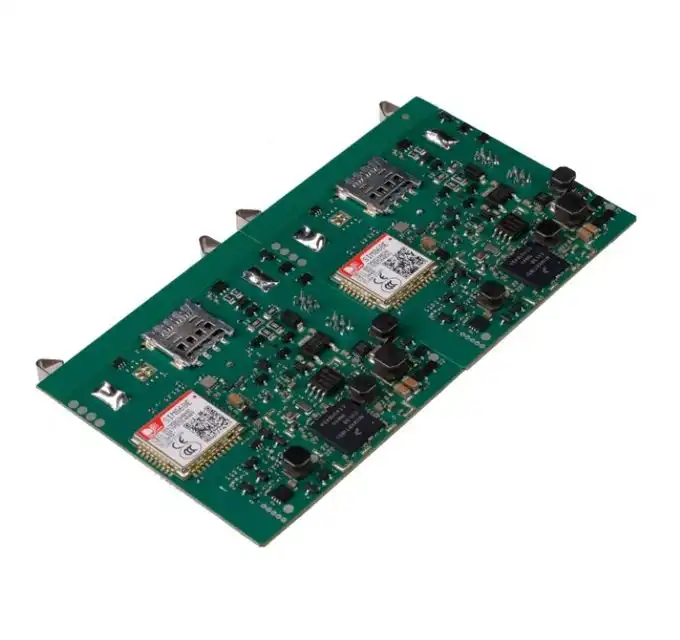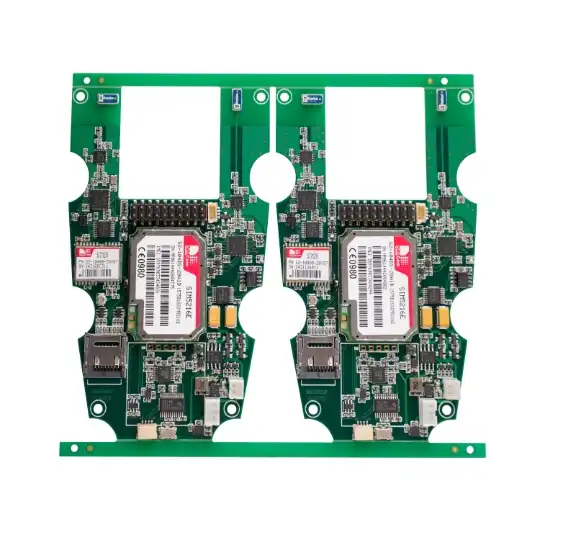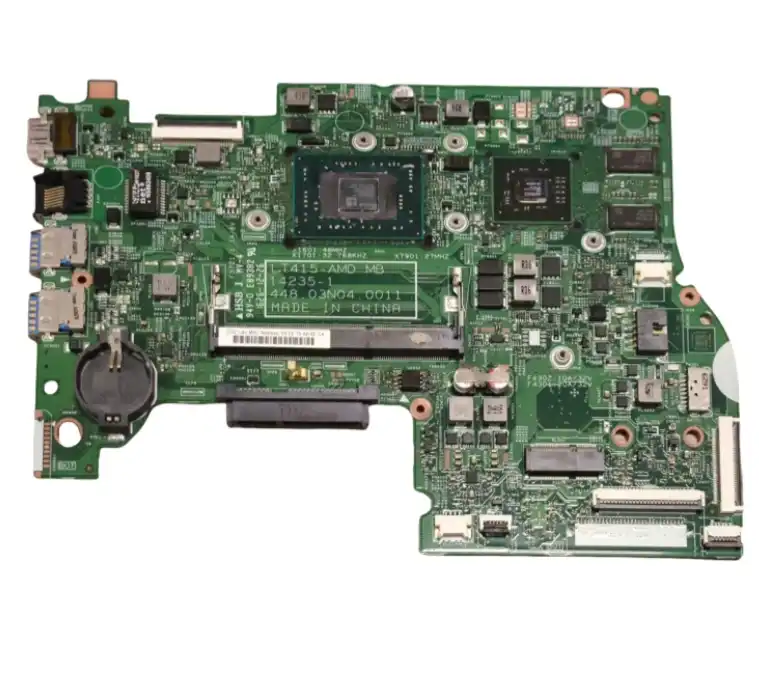Fundamental Factors Influencing Custom PCB Board Pricing
Understanding the key elements that affect custom PCB board costs is crucial for both manufacturers and customers. These factors not only impact the final price but also the overall quality and performance of the board. Let's delve into the primary components that contribute to custom PCB board pricing:
Board Size and Layer Count
The physical dimensions of a custom PCB board play a significant role in its cost. Larger boards require more raw materials and occupy more space on production panels, leading to higher prices. Similarly, the number of layers in a PCB directly affects its complexity and cost. Multi-layer boards demand more materials, additional manufacturing steps, and sophisticated equipment, resulting in increased expenses.
Material Selection
The choice of substrate material is a crucial factor in custom PCB board pricing. High-performance materials like Rogers or Taconic offer superior electrical properties but come at a premium compared to standard FR-4. The copper weight and thickness also influence costs, with heavier copper layers increasing the overall price due to material costs and the need for more precise etching processes.
Design Complexity
Intricate PCB designs with high component density, fine pitch traces, or advanced features like buried vias or micro vias require specialized manufacturing techniques. These complex designs often necessitate additional processing steps, more sophisticated equipment, and higher-skilled labor, all of which contribute to increased costs. Moreover, designs that push the boundaries of manufacturing capabilities may require multiple iterations or special handling, further impacting the final price.
Production Factors Affecting Custom PCB Board Costs
Beyond the fundamental design elements, several production-related factors significantly influence the cost of custom PCB boards. These aspects often relate to the manufacturing process, volume, and specific requirements of the project:
Production Volume
The quantity of custom PCB boards ordered has a substantial impact on per-unit costs. Larger production runs allow manufacturers to distribute setup costs across more units, leading to economies of scale. Additionally, bulk orders of raw materials can be secured at lower prices, further reducing overall costs. However, it's important to note that while high-volume production generally decreases per-unit prices, it may increase the total project cost.
Turnaround Time
The urgency of a custom PCB board order can significantly affect its price. Rush orders that require expedited production often incur premium charges due to the need to prioritize the job over other orders, potentially requiring overtime labor or dedicated equipment use. Standard lead times typically offer the most cost-effective option, while ultra-fast turnarounds can substantially increase prices.
Special Finishes and Treatments
Various surface finishes and special treatments can be applied to custom PCB boards to enhance their performance or durability. Options like ENIG (Electroless Nickel Immersion Gold), HASL (Hot Air Solder Leveling), or hard gold plating can increase costs due to additional processing steps and materials. Similarly, conformal coatings or other protective treatments add to the overall expense but may be necessary for boards used in harsh environments.
Advanced Considerations in Custom PCB Board Pricing
As we delve deeper into the intricacies of custom PCB board costs, it's important to consider some advanced factors that can have a substantial impact on pricing. These elements often relate to specialized requirements, regulatory compliance, and long-term considerations:
Testing and Quality Assurance
Rigorous testing and quality assurance processes are essential for ensuring the reliability and performance of custom PCB boards. However, these procedures can significantly affect costs. Advanced testing methods such as flying probe tests, in-circuit testing, or X-ray inspection add to the overall expense but provide valuable assurance of board functionality. The level of testing required often depends on the application, with mission-critical or high-reliability boards necessitating more comprehensive and costly quality control measures.
Regulatory Compliance and Certifications
Depending on the intended application and market, custom PCB boards may need to meet specific regulatory standards or obtain certifications. Compliance with regulations such as RoHS (Restriction of Hazardous Substances) or UL certification can impact material choices and manufacturing processes, potentially increasing costs. Additionally, documentation and testing required for certification can add to the overall expense. However, these certifications are often crucial for market access and product reliability, making them a necessary investment.
Intellectual Property Protection
For innovative or proprietary designs, intellectual property protection may be a concern. Implementing measures to safeguard design confidentiality, such as non-disclosure agreements or specialized manufacturing processes, can add to the cost of custom PCB boards. In some cases, manufacturers may need to invest in secure facilities or dedicated production lines to ensure the protection of sensitive designs, which can be reflected in the final pricing.
Conclusion
The cost of a custom PCB board is a multifaceted consideration that extends beyond basic materials and manufacturing. From fundamental factors like board size and layer count to advanced considerations such as regulatory compliance and intellectual property protection, numerous elements contribute to the final price. Understanding these factors can help both manufacturers and customers make informed decisions, balancing cost-effectiveness with performance and quality requirements. By carefully evaluating each aspect and working closely with experienced PCB manufacturers, it's possible to optimize custom PCB board designs for both functionality and cost-efficiency.

FAQ
How does board thickness affect custom PCB board cost?
Thicker boards generally cost more due to increased material usage and potentially more complex manufacturing processes.
Can I reduce costs by using a standard board size?
Yes, using standard sizes can often lower costs as it allows for more efficient use of production panels.
How does the choice of solder mask color impact pricing?
While most colors have similar costs, some specialty colors may be more expensive due to lower demand and higher material costs.
Expert Custom PCB Board Manufacturing Solutions | Ring PCB
Ring PCB offers comprehensive custom PCB board manufacturing solutions, leveraging our team of 500+ professionals and state-of-the-art facilities. Our expertise in R&D, sales, and customer support ensures high-quality, cost-effective PCB solutions tailored to your specific needs. With ISO certifications and 24/7 operations, we deliver reliable, innovative custom PCB boards for various industries. Contact our factory at [email protected] to experience our manufacturer's advantage in custom PCB production.
References
1. Johnson, A. (2022). "Optimizing Custom PCB Board Designs for Cost-Efficiency." Journal of Electronic Manufacturing, 15(3), 78-92.
2. Smith, B., & Lee, C. (2021). "Impact of Material Selection on Custom PCB Board Performance and Cost." Advanced Circuit Technology Review, 8(2), 145-160.
3. Garcia, M. (2023). "Regulatory Compliance Challenges in Custom PCB Board Manufacturing." International Journal of Electronics Production, 12(4), 210-225.
4. Wong, D., & Thompson, E. (2022). "Balancing Quality and Cost in High-Volume Custom PCB Board Production." Electronics Manufacturing Insights, 19(1), 55-70.
5. Patel, R. (2023). "Emerging Technologies and Their Effect on Custom PCB Board Pricing." Future Electronics Review, 7(3), 180-195.






